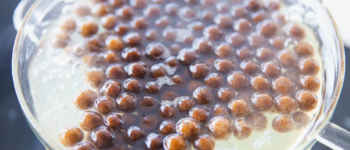What is red raspberry leaf tea?
Red raspberry leaf tea is an herbal tea made from the leaves of the raspberry plant. The tea has been used throughout history for medicinal purposes, particularly for uterine and pregnancy health. Some women also drink it to help induce labor, although there’s no evidence this works.
What are red raspberry leaf tea’s benefits?
Raspberry leaf tea benefits include:
- Healthy nutrients. Raspberry leaves are rich in vitamins and minerals, including vitamins A, C, and E, as well as iron, calcium, and potassium.
- Improved uterine health. The tea is thought to increase blood flow to the uterus and strengthen uterine muscle fibers. This may help improve the effectiveness of contractions during labor.
- Antioxidant and anti-inflammatory properties. These effects are thought to be beneficial to overall health.
It’s possible that raspberry leaf tea may also:
- Shorten labor. One small study of less than 200 women found that raspberry tea shortened the second stage of labor by about 10 minutes.
- Reduce the need for labor interventions: The same study found a decrease in the use of forceps in women who consumed raspberry leaf in tablet form from 32 weeks of pregnancy until labor. An even smaller study of just over 100 women suggested those who had raspberry leaf products during pregnancy were less likely to require a c-section, artificial rupture of the bag of waters, or vacuum-assisted birth compared with women who didn’t consume raspberry leaf tea.
- Lower rates of pre-term and post-term birth: A small, observational study involving around 150 women found those who drank raspberry leaf tea were more likely to give birth close to their due date.
- Reduce nausea. Some midwives and herbal books promote red raspberry tea as a way to help with morning sickness. However, there is controversy over whether it’s safe to drink the tea during the first trimester.
- Ease labor pains. Raspberry leaf is sometimes touted as helping reduce the pain of labor, but there are no studies to confirm this.
Overall, research on raspberry leaf tea is scarce. The few studies that do exist aren’t large enough to prove that the tea is helpful during pregnancy or labor, or to discount possible negative side effects
Can I drink red raspberry leaf tea to induce labor?
There’s no evidence that red raspberry leaf tea actually induces labor, but it’s possible that consuming a lot of the tea at once could lead to intense contractions that distress your baby. It could also make you feel sick or give you diarrhea. It’s best not to drink a lot of raspberry leaf tea in one go, either earlier in pregnancy or to try to kick-start labor.
See more : How to Steam Milk Without Steamer?
Some doctors and midwives advise against taking anything that could interfere with labor, especially if, like raspberry leaf tea, it hasn’t been well studied. If you do want to try it, you could sip a little of the tea during early labor or at the hospital or birth center.
Don’t drink the tea if your labor is being induced, as the compounds in the tea could interfere with the induction process.
Is red raspberry leaf tea safe during pregnancy?
It’s unknown whether red raspberry leaf tea is completely safe, because of the lack of research. Some experts recommend avoiding the tea completely (along with many other herbal supplements) during pregnancy, because there’s not enough evidence to prove that it’s safe or beneficial.
If you do decide to drink red raspberry leaf tea, it’s recommended you don’t start until around 32 weeks of pregnancy, and that you only drink it in moderation. It’s best to avoid drinking the tea during the first trimester. Some experts worry the stimulating effects of the tea on the uterus could cause a miscarriage early in pregnancy.
While a couple of small studies found no safety concerns among pregnant women who consumed raspberry leaf in tea or tablet form during pregnancy, a recent analysis of 74 published studies on herbal medicine use in pregnancy found that raspberry leaf consumption was associated with higher risk of cesarean delivery. Another study found an association between the herb and gastrointestinal complaints during pregnancy such as diarrhea, constipation, nausea, bloating, vomiting and heartburn.
See more : How Much Caffeine In Bubble Tea
It’s possible raspberry leaf tea may also be problematic for women with gestational diabetes. One published case study showed an association between consuming the tea and reduced blood sugar in a woman with the disorder. But another study of compounds in raspberry leaf found they may be helpful for diabetes, including gestational diabetes.
In summary, there’s no clear evidence of benefits or problems with drinking raspberry leaf tea during pregnancy.
How much red raspberry leaf tea should I drink during pregnancy?
If you decide to drink red raspberry leaf tea, it’s recommended to start around 32 weeks of pregnancy with just one cup a day. You could gradually increase this to two or possibly three cups a day (or the equivalent in tablet form).
Don’t drink the tea during your first trimester. Stop drinking the tea if you start getting strong Braxton Hicks contractions, or any other side effects.
It’s a good idea to talk to your doctor or midwife before taking any herbal supplement during pregnancy, including red raspberry tea.
Who shouldn’t drink red raspberry tea during pregnancy?
Don’t drink raspberry leaf tea if:
- You had a previous labor that lasted three hours or less.
- You’re having a c-section, or you’ve had a caesarean section before.
- You previously went into labor prematurely.
- You’ve had any vaginal bleeding in the second half of your pregnancy.
- You’ve had or are at risk for ovarian cancer, endometriosis, or fibroids.
- Your baby is breech.
- You have pregnancy complications such as high blood pressure.
- You’re expecting twins.
- You have pre-existing or gestational diabetes.
Nigel Gildon editor:Nigel Gildon is the editor of Chef Wayne’s Big Mamou: Chef Wayne’s Big Mamou. He has worked in the publishing industry for many years and has a passion for helping new authors get their work into the hands of readers. 63 Liberty Street * Springfield, MA 01003




